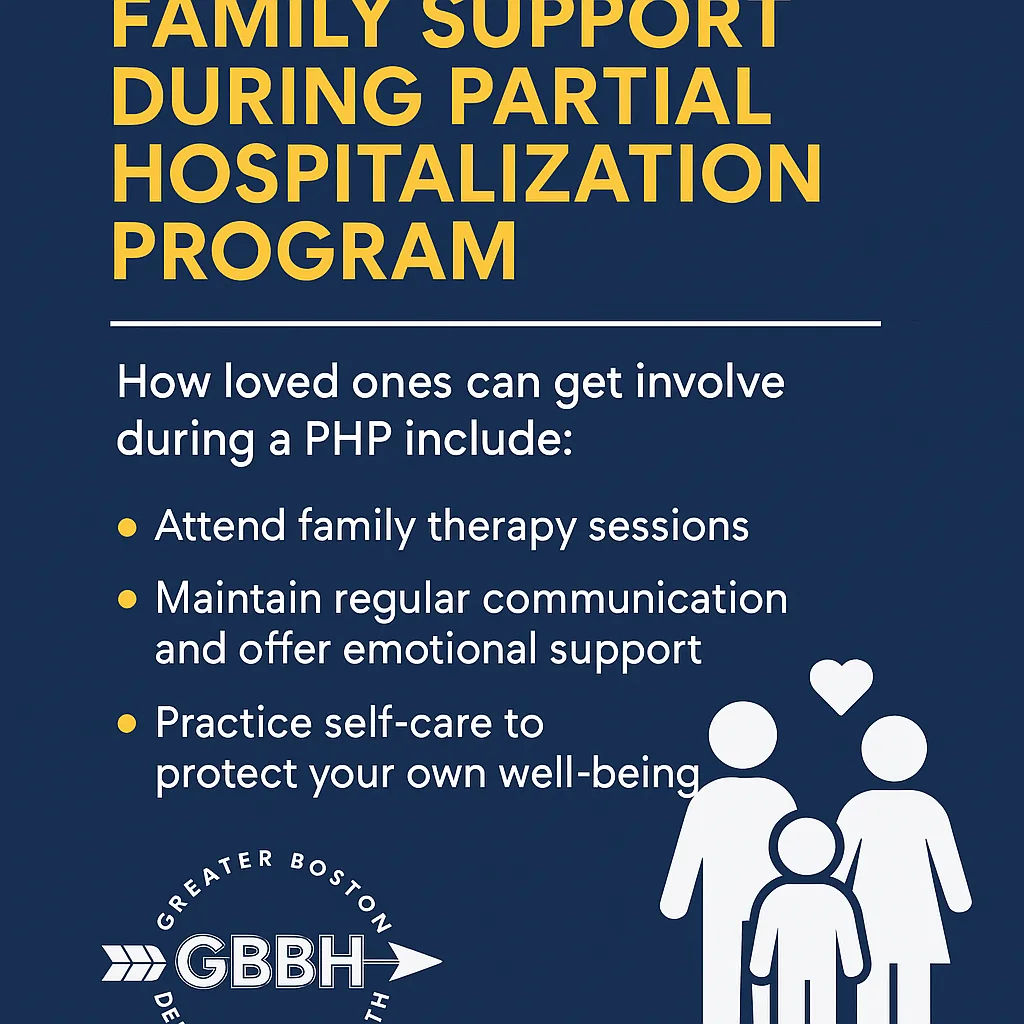I remember the silence most. When someone you care about enters a Partial Hospitalization Program (PHP), life doesn’t just go on as usual. The rhythm shifts. Conversations get shorter, routines feel emptier, and suddenly, you’re left with a whole lot of time to think: Am I supposed to step back? Push forward? Where do I even fit in now?
If you’re navigating these questions, you’re not the only one. The truth is, families play a crucial role in the healing process. Your loved one’s time in a PHP isn’t a chapter where you disappear—it’s a chance to participate in a healthier, more honest relationship dynamic. And yes, you get to keep being you, even in this.
You Don’t Disappear in This Process—You Evolve With It
Partial Hospitalization Programs are built to offer structured care during the day while allowing clients to stay connected to their life outside of treatment. This includes family life. PHP doesn’t remove your loved one from the family dynamic—it creates a structured pause where healing can happen without cutting ties.
At Greater Boston Behavioral Health, the Partial Hospitalization Program in Boston is designed with family involvement in mind. Treatment teams encourage connection, communication, and shared learning, making space for families to grow alongside their loved one.
Emotional Reconnection Is Part of the Treatment
Mental health challenges often thrive in isolation. They erode communication, twist emotions, and leave everyone feeling misunderstood. One of the most beautiful aspects of PHP is how it actively repairs these broken lines of communication.
Many programs offer:
- Family therapy sessions where trained counselors help you navigate sensitive topics safely.
- Educational workshops that explain mental health conditions in relatable, non-clinical terms.
- Skills groups that equip both clients and families with healthier communication tools.
Think of it as learning to dance again. The rhythm may feel unfamiliar at first, but over time, you’ll notice your steps getting easier, your connection feeling stronger, and your conversations becoming more real.
Your Identity Doesn’t Have to Be “The Support System”
When someone we love struggles, it’s easy to shrink ourselves. To become the helper, the rescuer, or the fixer. But you are allowed to be more than your loved one’s support person. You’re allowed to be creative, social, vibrant—you’re allowed to be fully yourself.
One of the most overlooked benefits of participating in your loved one’s PHP journey is discovering your own areas for growth. Many family members realize they’ve been carrying stress and fear for so long, they forgot what it feels like to just be themselves. PHP creates a safe container for your loved one—and for you to reclaim your space.
If you’re in Dedham, MA, Greater Boston Behavioral Health offers additional resources like family groups and outpatient options so you can explore your own healing journey alongside your loved one.
Small Rituals Keep You Connected Without Pressure
Grand gestures aren’t required. The most powerful ways you can show up for your loved one in PHP are often the simplest:
- Sending a playlist that reminds you of better days.
- Preparing a favorite meal after their therapy day.
- Leaving a note on the counter that says, “You’ve got this.”
- Asking open-ended questions like, “How did today feel for you?” instead of “What did you work on?”
These small rituals send a clear message: You are loved, we are connected, and I’m here—without needing to control or fix you.
PHP Is Temporary, But the Impact Can Be Lasting
Partial Hospitalization Programs don’t last forever. Most clients attend for several weeks to a few months, depending on their progress and needs. But the emotional scaffolding built during this time can strengthen your family in ways that outlast the program itself.
Families often report:
- Less blame, more understanding.
- Better tools for de-escalating conflict.
- More authentic connections.
- Reduced fear about mental health topics.
When you stay engaged, you don’t just support your loved one—you change your family dynamic for the better.
Involvement Doesn’t End When PHP Ends
Many families experience a mix of relief and fear when PHP concludes. “What now?” is a common question. The good news? Many programs, including those in Boston, offer step-down levels of care like Intensive Outpatient Programs (IOP), and continued family therapy.
It’s not about going back to the way things were—it’s about continuing to evolve. If you’re local to Newton, Dedham, Needham, Wellesley, or Boston, Massachusetts, GBBH offers help that meets you exactly where you are. Staying connected to aftercare options helps prevent old patterns from creeping back in and offers ongoing support during the ups and downs of real life.
It’s Okay to Be Scared of Change—and Still Show Up
Fear doesn’t make you weak. It makes you human. Many families are afraid of what recovery will change—afraid their loved one will become someone they don’t recognize, or that they themselves will have to give up familiar roles.
But healing doesn’t erase you. It helps you discover more of who you are beneath the stress, fear, and coping mechanisms. And for families who love deeply and show up fiercely, that can be a powerful gift.
Frequently Asked Questions About Family Involvement in PHP
Do families get to visit during PHP?
It depends on the program. Most PHPs have specific times for family therapy or visits but limit social visits to protect the therapeutic process. Greater Boston Behavioral Health offers structured family involvement during PHP in Boston, MA.
Can I talk to my loved one’s therapist?
Yes—with permission. Privacy laws protect your loved one’s confidentiality, but many programs include regular family updates or family therapy sessions where you can communicate directly with the treatment team.
Is there support for families too?
Absolutely. Many treatment centers, including Greater Boston Behavioral Health, offer family groups, psychoeducation, and referrals to individual therapy for family members. Healing is most effective when the whole system feels supported.
How do I avoid enabling while being supportive?
This is one of the biggest fears for families. PHP programs teach boundaries—how to love without over-functioning, how to support without controlling, and how to take care of yourself too.
What happens after PHP ends?
After PHP, your loved one may transition to outpatient care, step-down services, or return to individual therapy. Many families continue family therapy and use community resources to stay involved and informed.
Ready to stay connected while supporting your own well-being?
Call (888) 450-3097 or visit to learn more about our Partial Hospitalization Program services in Boston, Massachusetts.


